Hello there, are you tired of constantly worrying about the state of your bathroom floor? Well, worry no more because resin flooring might just be the solution you've been looking for. With its durability and water-resistant properties, resin flooring is becoming a popular choice for bathroom renovations. But is it really the right choice for you? Let's explore the benefits and considerations of resin flooring in bathrooms with these ideas from Epoxy Gang.

Resin flooring is a long-lasting and seamless flooring option that is made by combining a clear resin with a variety of materials such as quartz, marble, or colored glass. This type of flooring is renowned for its exceptional resistance to chemicals and its simple maintenance, making it ideal for a range of environments, including industrial, commercial, and residential spaces.
Discover: How To Install Resin Kitchen Floor
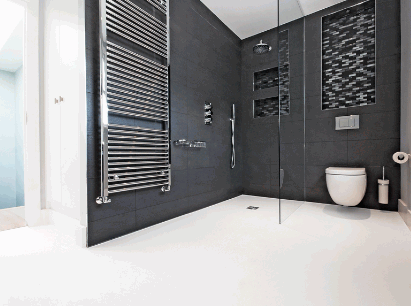
When it comes to choosing the right flooring for your bathroom, resin flooring is a popular and durable option. However, not all resin flooring is created equal. In this section, we will discuss the different types of resin flooring available and their unique properties. From the strong and versatile epoxy flooring to the waterproof and chemical-resistant polyurethane flooring, and the fast-curing methyl methacrylate (MMA) flooring, we will explore the various options to help you make an informed decision for your bathroom.
Epoxy flooring is a highly sought-after option for both residential and industrial spaces, providing excellent durability and chemical resistance. Its seamless and glossy surface makes it effortless to clean and maintain. Additionally, with the ability to customize colors and designs, epoxy flooring offers versatility and can greatly enhance the visual appeal of bathrooms.
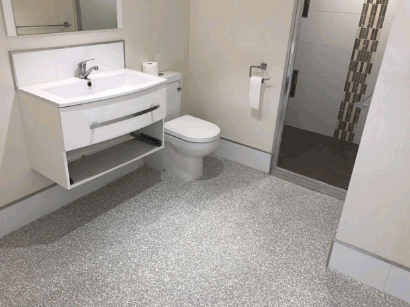
Polyurethane flooring, a sought-after type of resin flooring, provides exceptional durability and resistance to chemicals and abrasions. Its seamless nature prevents water seepage, making it a perfect choice for bathrooms. With its flexibility, it can withstand substrate movement, minimizing the risk of cracks. This type of flooring also offers a hygienic surface that is effortless to clean, making it highly suitable for wet environments such as bathrooms.
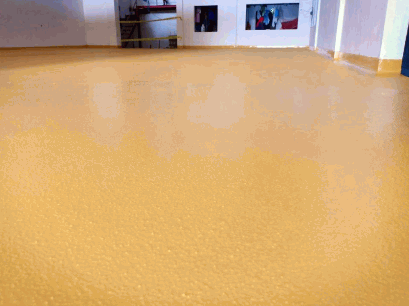
Methyl Methacrylate (MMA) flooring is a rapid-curing resin flooring solution that is perfect for bathrooms. It provides a seamless, waterproof, and slip-resistant surface, making it ideal for wet environments. MMA flooring is highly durable and has excellent chemical resistance, making it capable of withstanding heavy usage. However, proper ventilation is crucial during installation due to its potent odor.
When searching for bathroom flooring options, MMA flooring is a dependable choice due to its efficient installation process and strong characteristics.
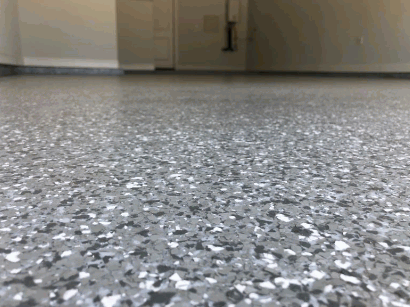
Yes, resin flooring is indeed suitable for bathrooms. Its water-resistant, durable, and seamless properties make it an ideal choice for wet environments. The impermeable nature of resin flooring effectively prevents water damage and mold growth, providing a hygienic and easy-to-clean surface.
The advantages of incorporating resin flooring in bathrooms include:
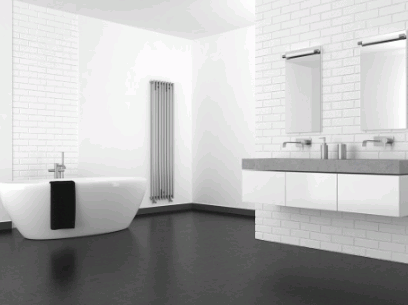
There are a few potential drawbacks to using resin flooring in bathrooms, including susceptibility to scratches and dents, limited color options, and the need for professional installation. Another concern is that resin flooring may become slippery when wet, so extra caution is necessary. To minimize these drawbacks, it is recommended to use bath mats for better traction, choose lighter-colored resin for improved visibility of water, and opt for textured finishes to enhance slip resistance.
While resin flooring may be a popular choice for bathrooms due to its durability and water-resistant properties, it may not be suitable for everyone. In this section, we will explore the alternatives to resin flooring in bathrooms. From traditional tile flooring to modern vinyl and concrete options, each alternative offers its own unique benefits and considerations. Let's take a closer look at these alternatives and determine which one may be the best fit for your bathroom.
Tile flooring is a popular option for bathrooms due to its durability, water resistance, and range of design options. Ceramic, porcelain, and natural stone are all commonly used materials for this type of flooring. Ceramic tiles are not only affordable but also easy to maintain. Porcelain tiles, on the other hand, are highly durable and ideal for areas with high moisture. Natural stone tiles, such as marble or travertine, provide a luxurious appearance but require more upkeep. It is important to regularly seal the grout to prevent water damage and preserve the integrity of the tile flooring.
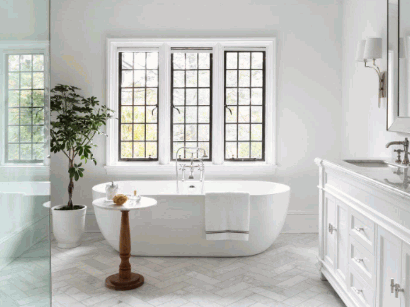
For bathrooms, vinyl flooring is a resilient and cost-effective option that is suitable due to its water-resistant properties. It offers a variety of design choices, including wood, stone, and abstract patterns. While it is durable, proper maintenance such as regular cleaning, preventing water damage, and timely repairs is essential.
When compared to resin flooring, vinyl flooring is a more budget-friendly and easier-to-install alternative, making it a popular choice for bathroom renovations.
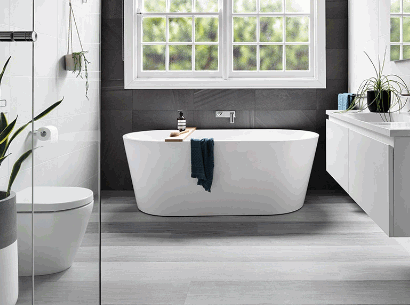
Concrete flooring is a great choice for bathrooms as it provides durability, moisture resistance, and a modern look. This option is also cost-effective and can be personalized with different finishes such as polished or stained concrete. This type of flooring has been used since ancient times, with civilizations like the Minoans using a form of concrete to create long-lasting floors in their palaces and homes.

Resin flooring is a popular and durable choice for bathroom flooring, but proper maintenance is crucial to ensure its longevity. In this section, we will discuss the various steps you can take to maintain your resin flooring in bathrooms. From regular cleaning to preventing water damage and repairing any damage, we will cover all the essential techniques to keep your bathroom flooring in top shape. So, let's dive in and discover the best practices for maintaining your resin flooring in bathrooms.
Pro-tip: Regularly inspect your resin flooring for any signs of damage to address them promptly.
61a, Walton St, Walton On The Hill, Tadworth,
Surrey, KT20 7RZ
info@amorybrown.co.uk